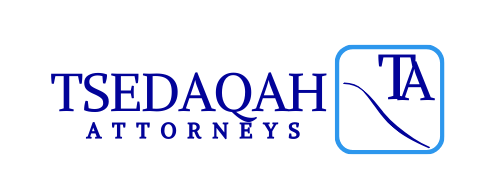
INTDODUCTION
The Business Facilitation (Miscellaneous Provisions) Act was signed into law by the President of the Federal Republic of Nigeria and came into effect on the 8th day of February 2023.
The Act is designed to simplify the process of starting and operating a business. The act is intended to reduce bureaucratic barriers and streamline procedures for entrepreneurs and businesses, making it easier to start and grow a business.
The World Bank’s Ease of Doing Business report ranks Nigeria 131 out of 190 countries in terms of ease of doing business. This ranking highlights the need for reforms that will make it easier to start and operate businesses in the country.
The Act seeks to address some of the challenges faced by entrepreneurs in Nigeria, including complicated registration processes, procedural requirements, and slow government processes. By simplifying these processes, the Act could create a more business-friendly environment and attract more local and foreign investment to Nigeria.
The Act makes provisions to facilitate the service delivery of the ministries, departments and agencies of the federal government as well as series of amendments to several existing laws, most of these amendments are substantial while a few are cosmetic.
NOTABLE CHANGES
TRANSPARENCY REQUIREMENT
The following are the major highlights of the Act:
1. The Ministries, Departments and Agencies (MDAs), which provide product and services are mandated, under Section 3, to publish all the requirements needed to obtain the product or services that they render, these includes documents, fees, timelines and procedures. In an event of a contradiction between a published and an unpublished list, the published list shall prevail.
2. In the case of failure on the part of the MDA to process the application of an applicant and either accept or reject the application within the timeline published, Section 4 of the BFA provides that the application shall be deemed to have been granted and the applicant can apply to the MDA for issuance certificate or document evincing the said grant.
3. The Act also prohibited touting in the ports, sea or air, and the staff of the port who are off duty are mandated to stay away from the port except with express approval of the MDA. It also criminalizes touting with a fine of one million naira.
AMENDMENTS TO COMPANIES AND ALLIED MATTERS ACT 2020 (CAMA).
Exemption of foreign companies from Incorporation.
Section 78 of the CAMA mandated every foreign company to be incorporated in Nigeria without which it cannot carry on business in Nigeria. However, it made room for two exceptions: 1) companies that have been granted an exemption before the coming into effect of the CAMA in 2020, and 2) all those exempted by virtue of any treaty which Nigeria is a party.
The BFA has added a third exception by way of section 78(2)(c) to wit: any other company exempted by an Act of the National Assembly.
Increase of share capital of the company by the Board of directors.
The old provision of Section 127 of CAMA provides that increase in share capital can only be done by the general meeting.
However, the BFA has amended this Subsection (1) to give the Board of Directors the power to increase the company share capital subject to the conditions imposed by the article.
Pre-emptive rights of existing shareholders.
By Section 142 of CAMA, no company is allowed to allot newly issued shares without first offering it to its existing members of the class of shares being issued. It must be as nearly as possible in the same proportion as they currently hold.
The BFA has inserted the word “private” in subsection one and to the effect that only private companies shall be bound by that provision. Thus, a public company can now allot newly issued shares to members of the public without having to offer it first to its existing shareholders in exercise of their pre-emptive right.
In the same section of CAMA, subsection (2) paragraph (2) was wholly substituted. The old provision is to the effect that the offer to the existing shareholders should specify a) the number of shares each shareholder can subscribe to, b) the price and c) a reasonable time within which the offer will be deemed declined if not accepted.
The BFA, substitutes the paragraph (c) and provided that if the offer is not accepted within 21 days, it is deemed declined.
Power to allot shares.
Section 149 of CAMA 2020 provides that for a public company, the power to allot shares is vested in the company i.e. general meeting, but for a private company, this power is exercisable by the company in general meeting and can as well be delegated to the directors subject to the conditions in the article.
However, the BFA has amended this provision such that that the power to allot shares is vested in the company but can be exercised by the board of directors only when the company has expressly given the board the authority to do so through the general meeting or the article. This new provision applies to both public and private companies.
Return of allotment
The BFA has amended Section 154 of the companies and allied matters act to the effect that the time period within which to file return of allotment has been reduced from 1 month to 15 days.
Electronic share certificate
The BFA has inserted a new subsection 7 into section 171 of CAMA 2020 to the effect that a company may now issue an electronic share certificate to an allotee or transferee.
Electronic meeting.
Section 240 subsection (2) of CAMA 2020 has been amended by the BFA to the effect that a company, whether private or public can now hold its general meeting meetings electronically.
Electronic voting.
The provisions of section 248 of the CAMA 2020 provides for the mode of voting in the general meeting, which will be by show of hands, however the BFA has amended the said section to include electronic voting as a mode of voting.
Independent directors
The CAMA 2020 under section 275 (1) made provision that every public company must have at least 3 independent directors. However, the BFA has amended this provision to the effect that public companies shall have at least one-third 1/3 of the total number of directors as independent directors. Consequently, under subsection (2) any person who nominates candidates for the board who will form the majority shall also nominate on-third of their number who would be independent directors.
Disqualification of directors
The BFA has revised section 283 of CAMA 2020 wherein it provides that a person will be disqualified from being a director of a company where he has been removed as a director under section 288 on grounds of fraud, dishonesty or unethical conduct.
Multiple directorship
The BFA has emphasized the provision of section 307 of the CAMA 2020, that a person can only be a director of 5 public companies and not more. Where he or she already is a director in more than 5 public companies, he or she must resign from all but 5 of the companies in the next annual general meeting after the expiration of two years from the commencement of the CAMA 2020.
Inability to pay debt.
The BFA has amended section 572 of CAMA 2020 which provided that a company is unable to pay its debt if it’s indebted to a person to a sum of at least NGN200,000 two hundred thousand Naira, and the creditor has made the demand in writing and the company has yet failed to pay after a period of three weeks. The amendment is to the effect that the sum is no longer as stated above but would now be determined by the regulation of the Corporate Affairs Commission (CAC).
AMENDMENT TO CUSTOMS AND EXCISE MANAGEMENT ACT.
The BFA introduced a new section 18A and 18B, and established the single-window platform to enable parties involved in trade and transport to lodge their data and other necessary documents as may be required by any government agency or authorities through a single-entry interface in fulfilment of import, export, transit or any other regulatory requirements.
It also mandated all the relevant authorities and agencies to schedule the examination and inspection of goods under the Act in such a way as to have all of them inspected at the same time.
AMENDMENT TO EXPORT (PROHIBITION) ACT
The BFA has adjusted the provision of Section 1 of the Export Prohibition Act to the effect that the items in the schedule of the Act or prohibited from exportation notwithstanding the provision the Custom Excise Tariff etc (consolidation) Act, and gives the Minister of Finance the power and responsibility to vary the goods prohibited from exportation as set out in the schedule of the Act.
AMENDMENT TO FINANCIAL REPORTING COUCIL ACT.
The BFA has inserted a subsection 3 to section 59 of the Financial Reporting Council Act to the effect that any general-purpose financial statement by a company or government organisation, shall comply with the standards and regulation of the council.
AMENDMENT TO FOREIGN EXCHANGE (MONITORING AND MISCELLANEOUS PROVISIONS) ACT
The BFA wholly substituted the entire section 6 of the foreign Exchange (Monitoring and Miscellaneous Provisions) Act and made provisions for specific grounds upon which the Central Bank shall revoke the licence of an authorised dealer or buyer.
AMENDMENT TO IMMIGRATION ACT
Section 20 of the immigration Act has been amended to include a new subsection 8 and 9, to the effect that entry visas to Nigeria shall be issued or rejected within 48 hours of receipt of a valid application, and that a comprehensive list of all the conditions, requirements, procedures and time frames shall be published at the immigration website, embassies and ports of entry.
It also has divested from the Minister the power to prohibit departure from Nigeria under section 36 of the Immigration Act and has vested them on the Comptroller General of Customs. Other amendments and addition include.
a) Notice of any change of particulars relating to business permit shall be given to the comptroller general of customs.
b) The service may establish the use of electronic means for filing of documents and information.
AMENDMENT TO INDUSTRIAL INSPECTORATE ACT
The BFA has varied the minimum threshold capital expenditure requirement to receive the certificate of acceptance of fixed asset by the Industrial Inspectorate Director (IID) and has increased same to five million naira. Hence, any capital expenditure to start a new undertaking or additional capital expenditure for an existing undertaking less than five million will not be captured under Section of 3 of the Industrial Inspectorate Act.
AMENDMENT TO INVESTMENT AND SECURITIES ACT (ISA)
Section 67 subsection (1) of the ISA has been amended by the BFA by wholly substituting the subsection for an entirely new provision to wit; that no allotment, in the case of a public company, shall be made except the amount stated in the prospectus as the minimum amount which in the opinion of the directors is required to be made by the issued share capital, has been paid and received by the company. But in the case of a private company, it will be guided by the regulations of the CAC.
AMENDMENT TO NATIONAL OFFICE FOR TECHNOLOGY ACQUISITION AND PROMOTION (NOTAP) ACT.
The BFA has amended subsection 2 of section 5 of the NOTAP Act to the effect that companies in their first two years of operation shall not be liable to any penalty as a result of late registration of their technology acquisition agreements if they registered it before the expiration of their second year.
AMENDMENT TO NIGERIAN PORTS AUTHORITY ACT
The BFA has amended the act by adding a few paragraphs and sub paragraphs to Section 7 of the Act to the effect that information technology will be employed in the operation of the port and prohibits unauthorised personnel from operating within the port.
It also provided for the established and maintenance of a single window platform where all operations required by government agencies will be carried out and ensure that the single-window platform is used.
AMENDMENT TO PATENT AND DESIGN ACT.
The BFA has amended the paragraph 13 of the first schedule to the patent and design Act to empower the minister to make regulations with respect to the procedure for application, grant, use and withdrawal of compulsory licence.
AMENDMENT TO STANDARD ORGANISATION OF NIGERIA (SON) ACT
Section 5 of the SON Act has been amended by the BFA to give additional functions to the organisation i.e.
a) To investigate the quality of products brought into Nigeria and establish a quality assurance system to certify factories, products and laboratories.
b) To compile a list of all products requiring standardisation and register all regulated products.
Section 29 of the act was also amended by the BFA to empower the Director-General to make ex-parte application to the court in order to cease or detain for a reasonable time not exceeding a period of 30days, any product which from his inspection the quality, purity or potency is hazardous to life. Seal up the factory where such product is being manufactured or prohibit any person from selling it.
AMENDMENT TO TRADEMARK ACT.
The BFA has amended section 67 of the Trademark Act to modify the definition of “goods” to include services, and also redefined trademarks to include marks used in relation to services and not just goods.
AMENDMENT TO INDUSTRIAL TRAINING FUND (AMENDMENT) ACT.
Section 6 of the ITF Act has been amended by the BFA to the effect that, any employer with 25 or more employees and not operating within the free trade zone shall in a calendar year or a date prescribed, contribute 1 percent of its annual payroll to the ITF. This also applies to contractors, consultants and suppliers bidding for or soliciting contracts from any federal government agency or a private entity.
CONCLUSION
The provisions of the BFA are quite commendable, especially those that deal with MDAs and the ports. Hopefully, with a faithful implementation, it will bring about some ease and smoothness in the dealings with federal government agencies and departments.
Efforts should now be made to reflect the amendments in the various amended legislations to avoid confusion and improve compliance.
Authors:
- Collins Odoh
- Fernandez Marcus-Obiene




